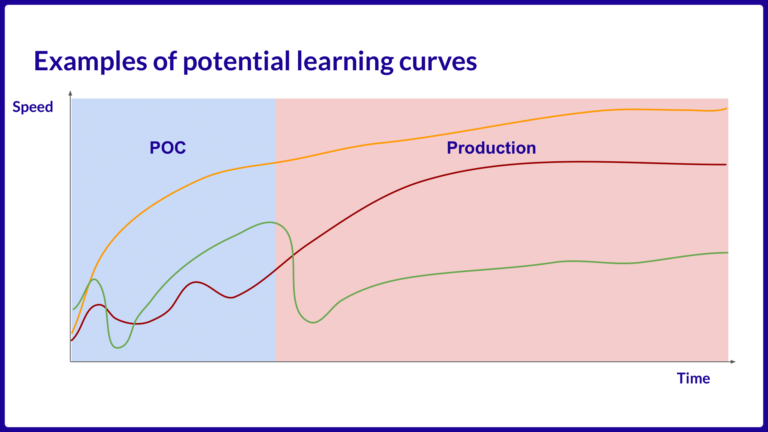This guest article was written by Kili-Technology, offering their seasoned perspective in Data Labeling Best Practices. We will explore in this article how Professional Data Labeling Companies can help companies in crafting better AI solutions, and how to select the right data labeling partner based on rational, easy-to-assess factors.
Introduction
Artificial Intelligence (AI) has become an indispensable part of business operations in the rapidly evolving digital age. It plays a crucial role in decision-making, enhancing customer experience, streamlining processes, and driving innovation. However, AI’s effectiveness significantly depends on one critical factor – high-quality data.
At Kili Technology, we put high-quality data first. The adage, “Garbage in, garbage out,” rings particularly true. The quality of insights generated by AI is directly proportional to the quality of the data fed into it. Inaccurate or poor-quality data can lead to flawed insights, potentially harming business operations.
This is where the role of a professional labeling workforce comes into play. These experts meticulously sift through mountains of data, tagging and organizing it to make it easier for AI systems to understand and learn from. This process, known as data labeling, is vital for creating accurate, efficient, and reliable AI models. By ensuring high-quality data, a professional labeling workforce forms the backbone of successful AI implementation in businesses.
Overcome Data Labeling Challenges Thanks to a Professional Labeling Workforce
Despite the crucial role of data labeling in AI, it is not without its challenges. Among these are scalability and time constraints, costs, and ensuring the quality of labeled data.
Scalability and time constraints
Data labeling is a time-consuming process requiring human intervention for tasks like tagging images or categorizing text. As the volume of data grows exponentially, scaling this process becomes a significant challenge. It’s not just about having more hands on deck; it’s also about ensuring that the labeling is done consistently and accurately across all datasets. Furthermore, the rapid pace of change in AI technologies necessitates continuous data labeling to keep the models up-to-date and effective. Balancing speed and scale while maintaining accuracy is a significant hurdle in data labeling.
Costs
Another challenge lies in the costs associated with data labeling. These costs can be substantial, particularly for large-scale projects that require specialized expertise. The expenses include the direct cost of the labeling service and the indirect costs associated with time spent on training, management, and quality control. For many companies, especially startups and small businesses, these costs can be prohibitive.
Ensuring the quality of labeled data
Perhaps the most critical challenge in data labeling is ensuring the quality of the labeled data. The effectiveness of AI models heavily relies on the accuracy and consistency of the labeled data they are trained on. Mistakes or inconsistencies in the labeling process can lead to significant errors in the AI’s output. Therefore, quality control measures are essential, but implementing them can be complex and time-consuming.
Benefits of partnering with a professional labeling workforce
Given the challenges associated with data labeling, businesses might wonder how to ensure their AI models’ quality and accuracy. The answer lies in partnering with a professional labeling workforce. Such a partnership brings many benefits that can help businesses overcome these hurdles.
Access to a Diverse Pool of Labelers with Specialized Skills
Professional labeling services boast a diverse pool of labelers with specialized skills. These labelers are trained in various fields, enabling them to handle various data types, from text or documents to images, video and even audio. This diversity ensures that no matter the nature of your data, there’s a skilled expert capable to learn your annotation task and accurately labeling it.
Improved Accuracy and Consistency in Labeling
Quality and consistency are the bedrock of effective data labeling. Professional labeling services have rigorous quality control processes to ensure that every piece of data is labeled accurately and consistently. This not only enhances the performance of your AI models but also saves you the time and resources needed to rectify errors or inconsistencies.
Enhanced Scalability and Faster Turnaround Time
One of the significant advantages of partnering with a professional labeling workforce is the ability to scale up or down based on your requirements. Whether you’re dealing with a sudden influx of data or a large, ongoing project, a professional labeling service can adjust its workforce accordingly. This flexibility allows for faster turnaround times without compromising the quality of the labeled data.
Expert Consultancy and Process Optimization in Annotation
Partnering with a professional labeling workforce extends beyond service delivery to include consultancy. Expert advice in choosing the right annotation tool and refining your annotation methods (choosing the right amount of review or consensus) can significantly streamline your process.
This level of consultancy extends to process optimization, where the experienced team helps in refining your workflow, eliminating inefficiencies, and enhancing productivity. By harnessing this expertise, you’re not just ensuring high-quality data annotation but also saving significant time and money, turning the data labeling process into a strong asset for your AI initiatives.
Professional labeling workforce ensures data security and confidentiality
As we delve deeper into the realm of AI and data labeling, one aspect that cannot be overlooked is data security and confidentiality. Data breaches and privacy concerns are rampant, so protecting sensitive information is paramount.
Addressing Concerns Related to Data Privacy and Security
While data labeling is vital for AI, it often involves handling sensitive and confidential information. Businesses may naturally be concerned about handing such data to a third-party labeling service. However, professional labeling services understand these concerns and have stringent measures to ensure data privacy and security.
Measures Taken by Professional Labeling Services to Protect Sensitive Information
Professional labeling services employ a variety of methods to protect your data. For starters, they use secure data transfer protocols to prevent unauthorized access during data transmission. They also provide secure data storage solutions, ensuring your data is safely stored and only accessible to authorized personnel.
Compliance with Relevant Regulations
Another critical aspect of data security is compliance with data protection regulations. These regulations, such as the General Data Protection Regulation (GDPR) in the EU or the California Consumer Privacy Act (CCPA) in the US, set out specific requirements for handling and protecting personal data.
Professional labeling services are well-versed in these regulations and ensure full compliance. They conduct regular audits and have established data governance frameworks to ensure that all data handling practices align with the relevant laws and regulations.
Data privacy and security are legitimate concerns in data labeling, and the best professional labeling services take extensive measures to address these issues. By partnering with a professional labeling workforce, businesses can ensure the safety and confidentiality of their data while reaping the benefits of high-quality data labeling for their AI systems.
Factors to consider when choosing a professional labeling workforce
Having established the importance of a professional labeling workforce and its benefits, the next question is – how do you choose the right one for your business? Here are some key factors to consider:
Experience and Expertise of the Labeling Service Provider
The first factor to consider is the experience and expertise of the labeling service provider. A provider with a proven track record in data labeling across various industries will likely deliver high-quality results. Their experience allows them to anticipate potential challenges and mitigate them effectively. Additionally, their expertise ensures they can handle various data types and complexities.
Quality Control Measures and Feedback Loop Processes
Quality control is a crucial aspect of data labeling. Therefore, it’s essential to understand the quality control measures employed by the labeling service provider. This includes their process for checking labeled data’s accuracy and consistency, error correction mechanisms, and feedback loop processes.
A robust feedback loop process allows labelers to learn from their mistakes and continuously improve their performance. It also enables the service provider to adapt to your specific requirements and deliver customized solutions.
Ethics
Last but not least, consider the ethics of the labeling service provider. This includes their commitment to data privacy and security, compliance with relevant regulations, and treatment of their labeling workforce.
An ethical provider ensures the protection of your data and contributes to a fair and equitable AI ecosystem. They recognize the value of their human labelers and ensure fair compensation and working conditions.
Improved working conditions are also crucial for enhancing the well-being of the workforce. Such conditions encourage labelers to stay within the labeling companies, ensuring that developed expertise is retained. Keeping the same labelers contributes to consistently higher quality in labeling tasks.
Choosing the right professional labeling workforce involves carefully evaluating their experience, quality control measures, and ethical standards. Businesses can find a partner that aligns with their needs and contributes to the success of their AI initiatives by strategically selecting the right professional labeling workforce.
Conclusion
Choosing the right professional labeling partner is crucial. It’s not just about ensuring data quality and accuracy; it’s about engaging with a partner that aligns with your ethical values, understands the nuances of your industry, and has a proven track record of excellence. Kili Technology’s collaboration with People for AI is a testament to this understanding.
People for AI distinguishes itself not just through its commitment to data privacy and compliance with regulations but also through its diverse project portfolio. With experience in various sectors such as medical, food tech, industrial, autonomous vehicle and retail, they bring a deeper understanding of different data types and labeling requirements. This varied expertise ensures that your data labeling project will be correctly handled by their professionals.
At the core of People for AI’s success is their ethical approach to employment. They offer permanent contracts to their labelers, fostering a stable and knowledgeable workforce. Offering continuous training to labelers ensures that their skills with different tools, data types, and tasks stay up to date. This stability allows labelers to develop a deeper understanding of their tasks, resulting in data labeling of superior quality. The positive industry feedback and reviews confirm that this ethical approach also brings operational excellence.
In today’s intricate data labeling landscape, People for AI’s straightforward and ethical approach sets them apart. Their blend of experienced labeling across varied domains and commitment to their workforce’s well-being makes them an exceptional partner in your AI journey.
We recommend trying out People for AI and seeing how their professional labeling workforce can help you unlock the potential of your data.




